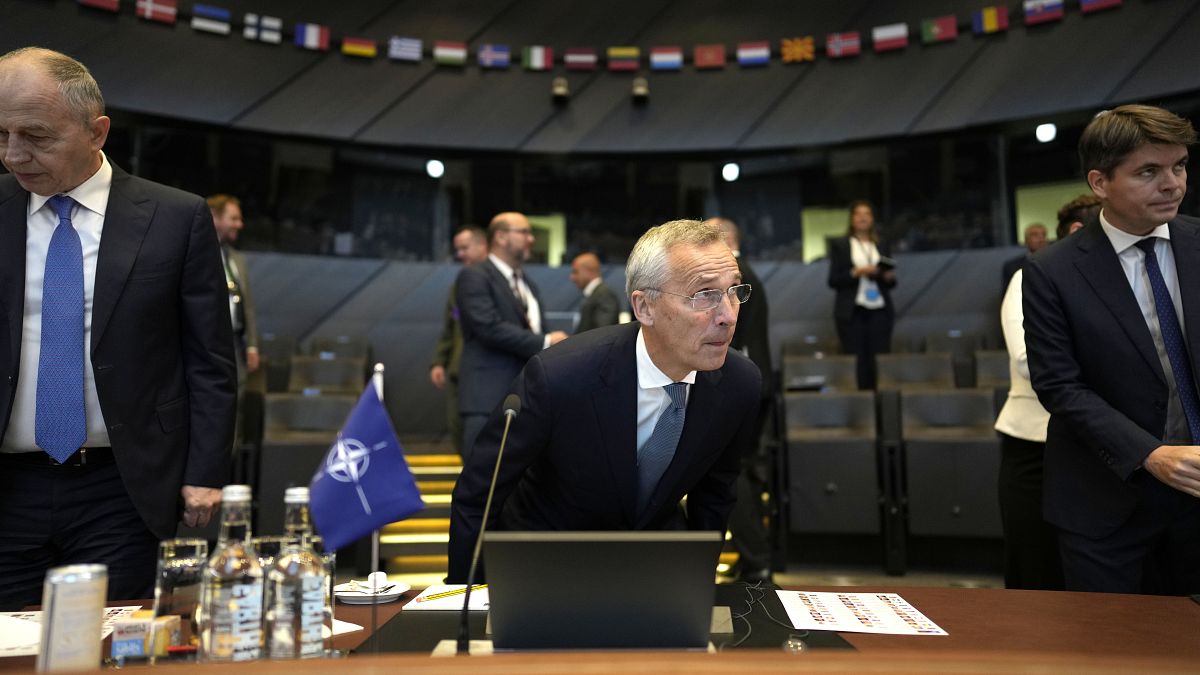Hostile nations, such as Iran, or groups like Hezbollah might attempt to take advantage of the armed conflict between Hamas and Israel, according to NATO's secretary-general.
Speaking following a meeting of the alliance's defence ministers, Jens Stoltenberg warned about this and added that although NATO is not directly involved in the Middle East conflict, the US has stepped up its military presence in the region.
The Israeli defence minister joined a meeting of NATO allies where he showed his counterparts a video of some of the atrocities committed by Hamas.
Member states called on Israel to respond to Hamas' attacks proportionately.
"We saw a shocking video and of course the reports are shocking. That’s also the reason why allies have condemned this terrorist attack against civilians in Israel," Stoltenberg told reporters in Brussels on Thursday.
"As this conflict evolves, it is important to protect civilians and this was also clearly expressed. There are rules of war and there are requests for proportionality and this was highlighted by many allies."
At the same time as the ongoing conflict in Israel and the Palestinian territories, Stoltenberg said he is aware of the recent damage to an undersea gas pipeline between Finland and Estonia.
He added that the military alliance will respond if the attack proves to be a deliberate sabotage:
"It is obvious that gas pipelines, power cables, internet cables, these type of undersea infrastructure are critical infrastructure for our societies. So, this has been high on the NATO agenda related to resilience for many years," he said.
"After the damage to the Nord Stream pipelines last year, we stepped up and increased our presence in the Baltic Sea and the North Sea."
A surprise attendance by Ukrainian President Volodymyr Zelenskyy proved fruitful, with the US announcing $200 million in military aid, in addition to over €100 million being pledged by the Ukraine Contact Group, as well as Germany considerably stepping up its support.
